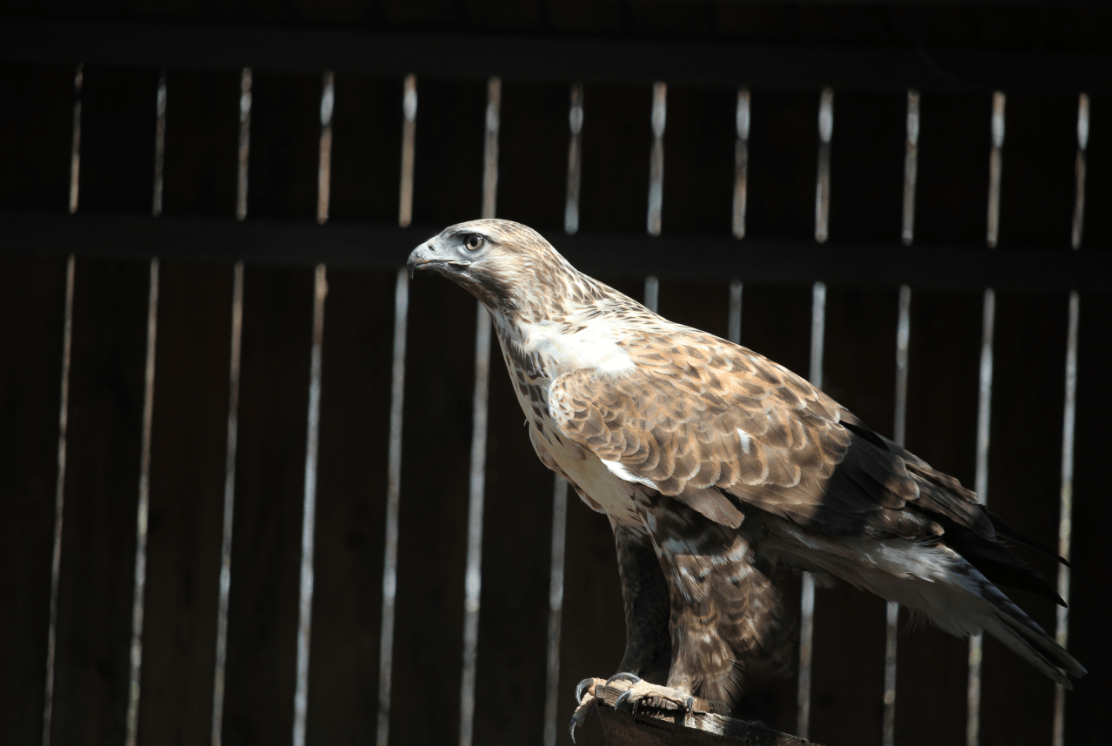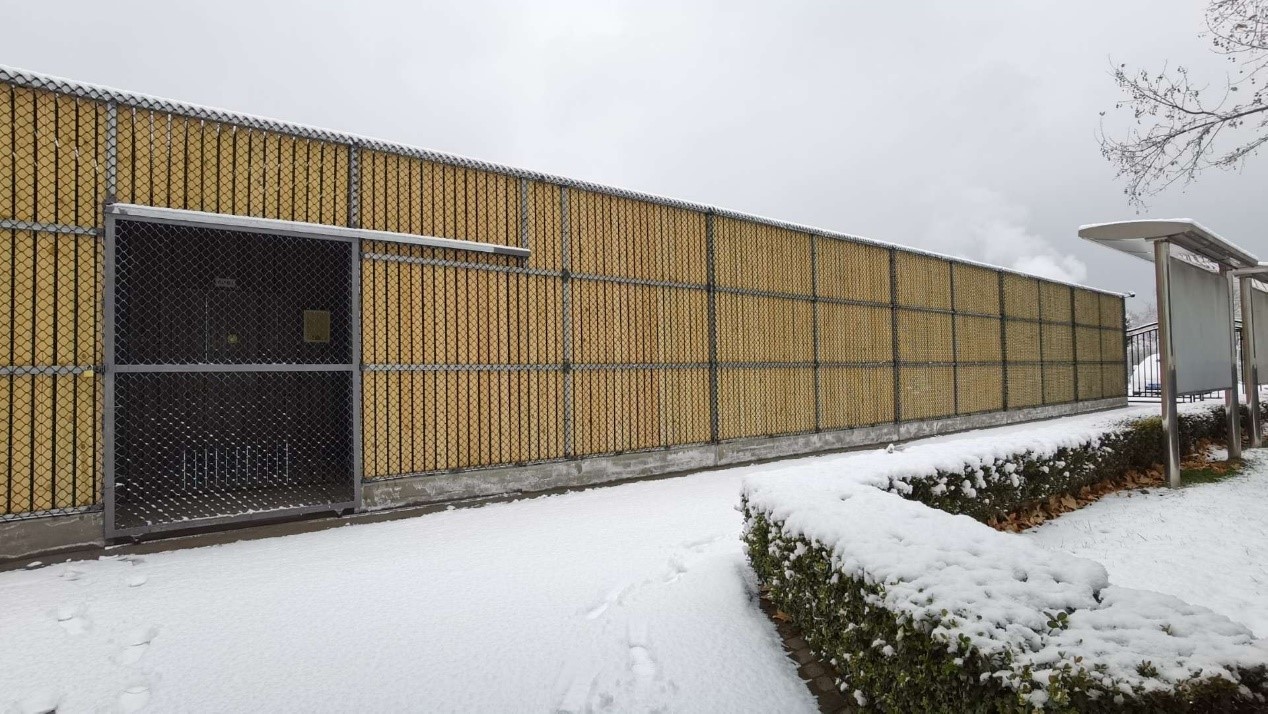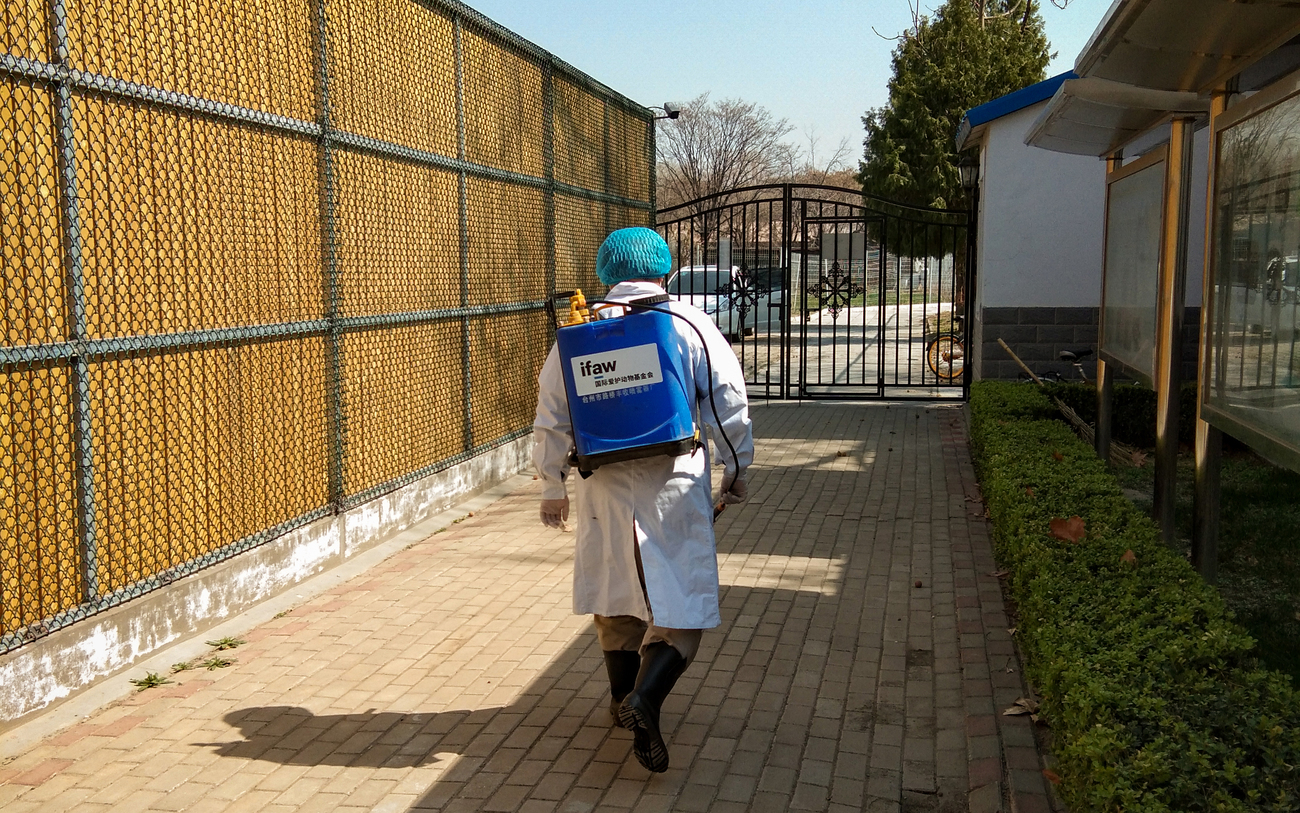caring for raptors in China during COVID-19: a diary from a rehabilitator
caring for raptors in China during COVID-19: a diary from a rehabilitator

Below is a diary excerpt from Chang Dai, a rehabilitator at the Beijing Raptor Rescue Center (BRRC) who shares her experience caring for raptors during the COVID-19 pandemic.
January 21, 2020 The journey home
With Chinese New Year approaching, many people have already returned home from work or study to reunite with their families. It has been called the largest annual human migration in the world. At the Beijing Raptor Rescue Center, my team is helping rescued raptors prepare for their journey back to the wild.
January 22, 2020 The calm under the masks
I vaguely remember the news saying that unidentified pneumonia was found in Wuhan at the end of last month. I didn't take it seriously at that time. I thought we survived SARS, so this wouldn’t be a big deal. However, things seemed to be getting worse every day.
January 25, 2020 Stocktaking and preparation
News about the epidemic hit all headlines recently. All staff rushed back to the BRRC and proactively worked out contingency plans for ensuring the safety of both animals and people. The first step was stocktaking because many medical items have been out of stock in major e-commerce platforms. In the warehouse, there were 200 medical surgical masks, a full box of 84 disinfectant, 4 bottles of Dettol laundry detergent, and 300 pairs of disposable latex gloves. The stocktaking barely gave me a sense of relief.
A silver lining to the situation: the 28 raptors in the aviaries are in good conditions. Nine of them still need to be treated regularly for wounds and the others were just about to molt. We were told we have to stop the admission of new patients to mitigate legal risks, medical supply shortage, and public health concerns. To minimize the risk of infection, we divided our staff into two different teams and had them work 7-day on and 7-day off shifts to ensure they didn’t cross paths.

February 9, 2020 Prevention and control upgraded
There is no exact day for the raptors to be released. We changed their rehabilitation plans since the government had issued an urgent order prohibiting any transportation of wildlife. On January 26th, three agencies overseeing markets, livestock, and wildlife issued a temporary ban on wildlife markets and trade. I know it is a significant first step to protect both people and animals.
On February 8th, a positive case was confirmed in the campus of Beijing Normal University and the brief calm was cracked. Prevention and control measures were officially upgraded. The biggest problem we faced was that we couldn’t get into the campus, let alone the Center to care for the birds! In order to ensure the safety of faculties and students, the university built a fence overnight to separate the teaching zone from the living zone. Unfortunately, our Center was zoned into the living part, which requires a campus card. As staff of a co-organizer, we only have temporary cards that don’t provide us with the authority to get into the living area. We faced a challenge.
After talking with security and showing all proof of identity, they finally let us get in and warned that they wouldn’t allow any exceptions next time. We ran to the Center, got the raptors fed, and treated the ones with wounds.
But where and how could we get the campus cards that we needed for tomorrow? We had no choice but to turn to BRRC Director, Professor Wenhong Deng of College of Life Science. At 10 am, he visited us to collect personal information to draft the application, and then left in a hurry. It wasn't until 4 pm that we finally got the campus pass. Professor Deng spent nearly a whole day’s time to help us get it! We could read from his face that he must had overcame many difficulties in the past few hours. We were incredibly thankful.
Many things had just happened in such a short time that it felt like our work and life had been turned upside down: the lockdown of our own community, the difficulty of hailing a cab, waiting anxiously outside the campus while it was snowing heavily. Those everyday things are becoming more and more difficult. We don’t know what tomorrow holds.
February 29, 2020 Preparing food supplies for raptors
We have two large freezers in the kitchen to store food for raptors. Both would be stuffed full during the peak season, but it's the off-season, so one would be enough. When the epidemic broke at the end of January, we found more than half of a freezer was stuffed with food. It would be enough for all 28 raptors to eat for at least one month based on our experience. We became worried as we saw food supplies decreasing and the lockdown getting longer. What’s more, we couldn’t find anywhere to buy mice for them! So the battle for storing food began.
We started to make a shopping list of foods that were suitable to feed the raptors. We had a common goal: buy as much raptor food as we could carry from all channels we could reach. After three days of shopping, we finally filled the other freezer full. For enriching the raptors’ food, we also bought the whole chicken complete with feather and internal organs, trying to imitate the preys they eat in the wild. Moreover, we surprisingly found a quail farm that could send quails by express delivery. Quails are perfect food for raptors, so it couldn't be better! When three boxes of quails arrived, we smiled with satisfaction. There was no need to worry about our raptors going hungry.

March 15, 2020 Hope on the horizon
Lockdown measures have shown to be effective across the country and the number of new positive cases is gradually decreasing. Although we still could not take off masks, our psychological burden has indeed been reduced a lot. Raptors are recovering step by step without any accidents. And those requiring regular treatment have also been reduced from nine to one. Although we sometimes still had difficulties on our way to work, we learned how to cope with them.
Today I suddenly found that the spring jasmines in the campus were blooming. The spring is really coming! It seems that the upland buzzard and other injured raptors are closer to returning to the wild. Our efforts have not been wasted, and the real victory of releasing these raptors back into the wild is coming soon.
- Chang Dai, Rehabilitator at the Beijing Raptor Rescue Center (BRRC)
Related content
Every problem has a solution, every solution needs support.
The problems we face are urgent, complicated, and resistant to change. Real solutions demand creativity, hard work and involvement from people like you.